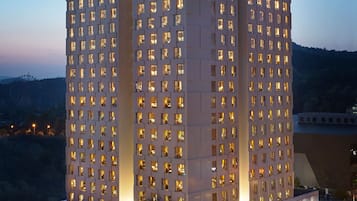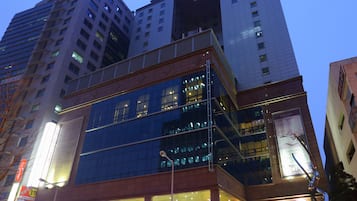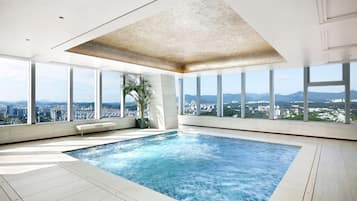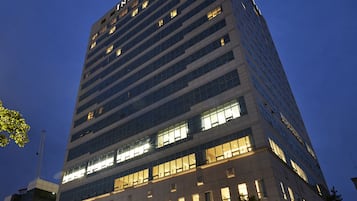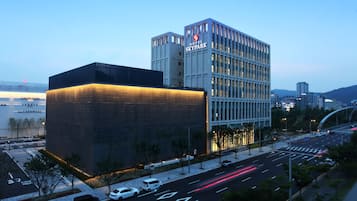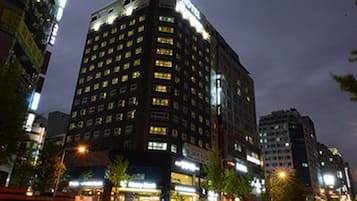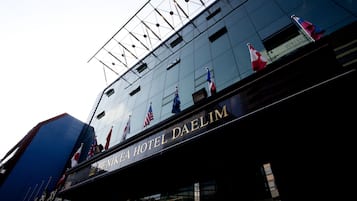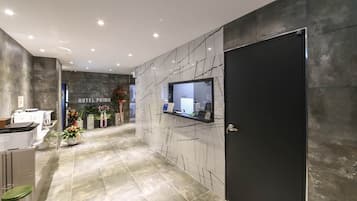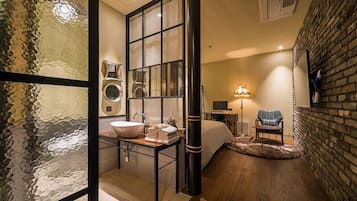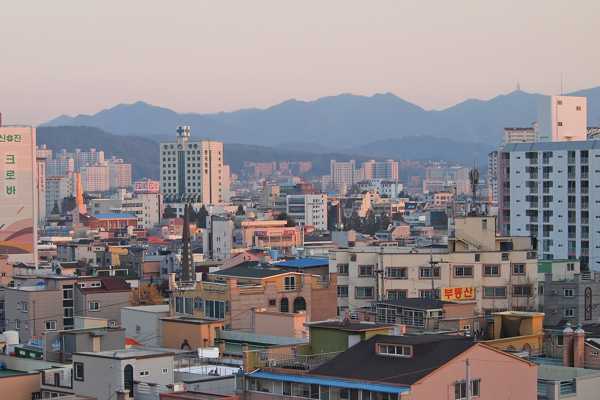There are great restaurants in Daejeon that share the city's fantastic food culture, which has developed around foods that everyone can eat casually rather than unique local cuisines. So, unlike other cities, Daejeon does not have many restaurants that specialise in just one dish. Gourmet restaurants are clustered around the old downtown area near Eunhaeng-dong, the City Hall Station in Dunsan-dong and the Yuseong Hot Spring area.
Among the standout dishes to try in Daejeon include seolleongtang (ox bone soup), samgye-tang (ginseng chicken soup), dolsotbap (hot pot rice), minmul maeuntang (spicy freshwater fish stew) and sutgol naengmyeon (Sutgol Village Korean cold noodles).
- 1
Seonhwa-dong Food Street
Authentic Korean cuisine on a budget

- Econômico
- Casais
- Alimentação
Seonhwa-dong Food Street is a bustling restaurant area near Daejeon Metropolitan Subway Station. Many of the eateries here offer cheap and delicious foods such as duruchigi (Korean bouillabaisse), kal-guksu (noodle soup), someori haejang-guk (ox head hangover soup) and suyuk (boiled beef or pork slices).
Korean bouillabaisse is one of Daejeon's specialities, and dubu duruchigi (stir-fried tofu) and ojingeo duruchigi (stir-fried squid) are also popular. The main ingredient (tofu, squid or pork) is stir-fried with seasonings and vegetables such as red pepper powder, onion and crown daisy to create spicy yet light flavours. It's good to take as a side dish or with wine. Don't miss it while in Daejeon.
Localização: Seonhwa-dong, Jung-gu, Daejeon, South Korea
Mapa - 2
Daeheung-dong Noodle Soup Alley
Home of warming and nutritious soup

- Casais
- Alimentação
Daeheung-dong Noodle Soup Alley is a great place to try Daejeon’s renowned kalguksu (noodle soup). The city has more than 1,700 kalguksu restaurants and even hosts a kalguksu festival every year. It's related to the fact that Daejeon Station used to be a distributing centre for flour when the country was receiving aid from the U.S.
Many noodle soup restaurants are gathered around Daeheung-dong, Jung-gu, where sagol kalguksu (shank bone noodle soup) and eolkeuni kalguksu (spicy noodle soup) are among the most popular varieties available. They also put crown daisies or leeks in the soup to create a richer flavour, or add perilla seeds according to taste. If you eat it with suyuk (boiled pork slices) or gimbap, it'll make a good budget meal.
Localização: Daesa-dong, Jung-gu, Daejeon, South Korea
Mapa - 3
Dunsan-dong Restaurant Street
Fashionable area for western and fusion cuisine

- Casais
- Alimentação
- Vida noturna
Dunsan-dong Restaurant Street, Seo-gu, is popular among couples on a date because it has many restaurants on the streets near the Galleria Department Store. The atmosphere in this area is elegant and upmarket.
Unlike other food streets in Daejeon, Dunsan-dong Restaurant Street has more western and fusion cuisine restaurants than local food eateries. Many franchise cafés and restaurants are also found on this street. If you're looking for a night out with a difference in Daejeon, consider a visit to this vibrant area.
Localização: Munjeong-ro, Seo-gu, Daejeon, South Korea
Mapa - 4
Bongmyeong-dong Restaurant Street
Soups and other Korean delicacies

- Casais
- Alimentação
Bongmyeong-dong Restaurant Street is often crowded because it’s close to Yuseong Hot Springs. Many of the restaurants in this area have been owned and run for generations by the same family. You can enjoy a variety of local dishes in these eateries. Particularly popular are those serving haejangguk (hangover soup) or gukbap (rice soup), many of which are open 24 hours a day.
Hangover soups variants such as ugeoji haejangguk (cabbage), hwangtae haejangguk (dried pollack) and sundae gukbap (Korean sausage and rice) are good to eat after bathing in hot springs.
Localização: Bongmyeong-dong, Yuseong-gu, Daejeon, South Korea
Mapa - 5
Gujeuk Acorn Jelly Village
Delicious and nutty acorn jelly dishes

- Casais
- Alimentação
- Viagens alternativas
Gujeuk Acorn Jelly Village is located near Bukdaejeon IC in Gwanpyeong-dong, Yuseong-gu. The village has moved from Gujeuk-dong due to the redevelopment of the area and is continuing its traditions in its present location. The signature dish here is dotorimuk bap (rice with acorn jelly in cold broth) also called muksabal. Pour the anchovy and kelp broth into finely sliced jelly and mix it with kimchi, seaweed, Cheongyang red pepper and perilla seeds. The sweet, fragrant and spicy broth will make you want more.
Every restaurant is said to have its own recipe for muk (acorn jelly). It's usually eaten with dotori bindae-tteok (acorn and mung bean pancake), and a glass of dongdongju (rice wine) will be a perfect addition to this feast of flavours.
Localização: Songgang-dong, Yuseong-gu, Daejeon, South Korea
Mapafoto de Deborah Hong (CC BY 2.0) modificada




